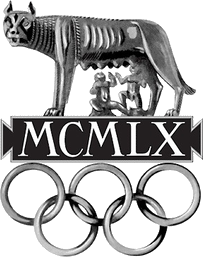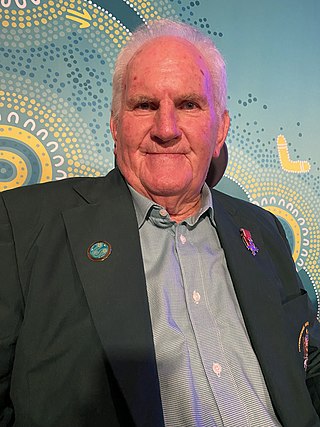
The 1964 Summer Olympics, officially the Games of the XVIII Olympiad and commonly known as Tokyo 1964, were an international multi-sport event held from 10 to 24 October 1964 in Tokyo, Japan. Tokyo had been awarded the organization of the 1940 Summer Olympics, but this honor was subsequently passed to Helsinki due to Japan's invasion of China, before ultimately being cancelled due to World War II. Tokyo was chosen as the host city during the 55th IOC Session in West Germany on 26 May 1959.

The 1960 Summer Olympics, officially known as the Games of the XVII Olympiad and commonly known as Rome 1960, were an international multi-sport event held from 25 August to 11 September 1960 in Rome, Italy. Rome had previously been awarded the administration of the 1908 Summer Olympics, but following the eruption of Mount Vesuvius in 1906, the city had no choice but to decline and pass the honour to London. The Soviet Union won the most gold and overall medals at the 1960 Games.

The 1964 Summer Paralympics, originally known as the 13th International Stoke Mandeville Games and also known as Paralympic Tokyo 1964, were the second Paralympic Games to be held. They were held in Tokyo, Japan, and were the last Summer Paralympics to take place in the same city as the Summer Olympics until the 1988 Summer Paralympics.

The Hungary men's national water polo team represents Hungary in international men's water polo competitions and is controlled by the Hungarian Water Polo Association. It is considered the world's top power in the history of water polo, having won 16 Olympic, 11 World Championship, 10 FINA World Cup, eight FINA World League, 24 European Championship and 16 Summer Universiade medals for a total of 88.

A team representing Ireland has competed at every Summer Paralympic Games but the country has never taken part in the Winter Paralympics. Irish athletes have won 178 Summer Paralympic medals, 47 gold, 57 silver and 74 bronze. Paralympics Ireland is the National Paralympic Committee. Athletes from Northern Ireland may compete for either Great Britain or Ireland at the Paralympics, on the same basis as at the Olympics.

Rhodesia competed at the inaugural Summer Paralympic Games in 1960 in Rome. It was the only African country to take part. Rhodesia sent two competitors to the games, one of whom was Margaret Harriman, who competed in archery and swimming. Harriman won a total of five medals, placing her country 11th out of 17 on the medal table. She took gold in both the archery events she participated in, and won a silver medal and two bronze in swimming.

Argentina participated in the inaugural Paralympic Games in 1960 in Rome, with a delegation consisting in five swimmers, and has taken part in every edition of the Summer Paralympics since then. The country made its Winter Paralympics début in 2010, with a two-man delegation in alpine skiing.

Germany (GER) participated in the inaugural Paralympic Games in 1960 in Rome, where it sent a delegation of nine athletes. The country, since 1949 officially the Federal Republic of Germany (FRG), was until 1990 also called West Germany while the separate East German Democratic Republic (GDR) existed, which was recognized by the IOC only after 1964. East German athletes, however, participated in the Paralympics for the first and last time in 1984. Following the reunification of Germany in 1990, athletes from all of Germany compete simply as Germany (GER) again.

Roberto Marson was an Italian multisport athlete who competed at the Summer Paralympics on four occasions and won a total of 26 Paralympic medals. He lost the use of his legs when a pine tree he was chopping down fell on his back.

Israel, participated in the inaugural Paralympic Games in 1960 held in Rome, Italy. The 1960 Paralympics, now considered to have been the first Paralympic Games, were initially known as the ninth Stoke Mandeville Games, an event for athletes with disabilities founded in Great Britain in 1948.

Switzerland was one of the seventeen nations that competed at the inaugural Summer Paralympic Games in 1960 held in Rome, Italy, from September 19 to 24, 1960. Preparations for the Games began two years prior in 1958 to stage what was at the time called the 9th Annual International Stoke Mandeville Games. The team finished thirteenth in the medal table with a total of four medals, one gold and three silver. The Swiss team consisted of two athletes: Denis Favre, a man who competed in athletics and swimming events, and Simone Knusli, a woman who competed in swimming.

Argentina was one of the nineteen nations that competed at the Summer Paralympic Games in 1964 held in Tokyo, Japan from November 3 to 12, 1964. The team finished eighth in the medal table with a total of thirty seven medals, six gold, fourteen silver and sixteen bronze. The Argentinian team consisted of twenty four athletes, eighteen male and six female.
Michael Shelton is a British sportsman who competed at the Summer Paralympic Games five times between 1960 and 1976 in snooker and other sports. He won six Paralympic medals, four gold, a silver and a bronze. He also won gold at the 1974 Commonwealth Paraplegic Games.

Daphne Jean Hilton was an Australian Paralympic competitor. She was the first Australian woman to compete at the Paralympic Games. She won fourteen medals in three Paralympics in archery, athletics, fencing, swimming, and table tennis from 1960 to 1968.

Elizabeth Mary Edmondson PLY is an Australian Paralympic competitor and current Australian Masters competitor in swimming. She became a paraplegic after contracting polio as a small child. She won several medals in the 1964 and 1968 Summer Paralympics. She subsequently retired from swimming, only taking up the sport again in 2006 to compete in the 2008 FINA World Masters Championships in Perth.

Gary Leslie Hooper, MBE is an Australian Paralympic competitor. He won seven medals at three Paralympics from 1960 to 1968.

Also known as the 13th Stoke Mandeville Games, the 1964 Summer Paralympics was the 2nd Paralympic Games. Hosted in Tokyo, the games ran from 8 to 12 November. Australia won a total of 30 medals and finished fourth on the medal tally behind Italy (3rd), Great Britain (2nd) and the United States (1st). Australia competed in 6 of the 9 sports at the Games, winning medals in each of those sports, but was most successful in the pool, winning a majority of their medals in swimming events.

The 13th International Stoke Mandeville Games, later known as the 1964 Summer Paralympics, was an international multi-sport event held in Tokyo, Japan, from November 3 to 12, 1964, in which paraplegic and tetraplegic athletes competed against one another. The Stoke Mandeville Games were a forerunner to the Paralympics first organized by Sir Ludwig Guttmann in 1948. This medal table ranks the competing National Paralympic Committees (NPCs) by the number of gold medals won by their athletes.
Caz Walton OBE is a British retired wheelchair athlete and former Great Britain Paralympic team manager. She was a multi-disciplinary gold medallist who competed in numerous Paralympic Games. Between 1964 and 1976 she won medals in athletics, swimming, table tennis, and fencing. She took a break from the Paralympics, entering the basketball and fencing competitions in 1988. In total Walton won ten gold medals during her Paralympic career, making her one of the most successful British athletes of all time. Walton should also have been awarded gold in the 1968 Tel Aviv Women's Pentathlon incomplete but, due to a miscalculation of her total score which went unnoticed at the time, she was given third place and a bronze medal.
Tommy Taylor was a British Paralympic athlete who won sixteen medals across five sports, including ten gold medals. Taylor was treated by Ludwig Guttmann after an accident in 1956 caused severe paralysis. He went on to compete at numerous Paralympic Games, finding particular success in para table tennis from Rome 1960 to Arnhem 1980. Eight of Taylor's gold medals came in table tennis, along with one in snooker and one in lawn bowls.















